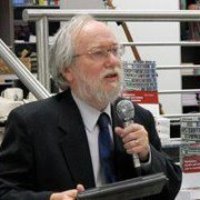- See other papers at http://works.bepress.com/neil_foster/ and http://papers.ssrn.com/sol3/cf_dev/AbsByAuth.cfm?per_id=504828 .
Neil Foster
The University of Newcastle, Law/Social Sciences, Faculty Member
- Associate Professor in Law at Newcastle Law School, NSW, Australia. Teaching and researching on Torts, Lawedit
Research Interests:
Research Interests:
Research Interests:
Research Interests:
Research Interests:
Research Interests: Art and Historical Jesus
Research Interests:
Research Interests:
Research Interests:
Research Interests:
Research Interests:
Research Interests:
Research Interests:
Research Interests:
Research Interests:
Research Interests:
Research Interests:
Research Interests:
Research Interests:
Research Interests:
Research Interests:
Research Interests:
Research Interests:
Research Interests:
Research Interests:
Research Interests:
Research Interests:
Research Interests:
Research Interests:
Research Interests:
Research Interests:
Research Interests:
Research Interests:
Research Interests:
Research Interests: Sociology, Law, Political Science, Jurisdiction, Delict, and 4 moreDuty, Tort, Statutory law, and Plaintiff
Research Interests: Engineering and Law
Research Interests: Law and High Court
The notion of “dignity” is usually associated with individuals. But in the religious sphere, individuals often join together as part of organisations, whether “churches” or other groups. Court decisions in disputes involving religious... more
The notion of “dignity” is usually associated with individuals. But in the religious sphere, individuals often join together as part of organisations, whether “churches” or other groups. Court decisions in disputes involving religious parties may involve the court being invited to decide what is a “valid” or “correct” religious doctrine. But is it consistent with the dignity that ought to be afforded to religious persons and groups for secular courts to take on a role as “amateur theologians”? There are good public policy reasons to suggest not, based on the lack of expertise of judicial officers, and religious freedom considerations supporting the authority and dignity of religious actors to decide the meaning of their own doctrines. However, in some cases, courts are required to determine religious questions for the purposes of enforcing a private law right, such as under a charitable trust for the advancement of religion, or an employment contract. Refusing to decide these issues in such cases may leave deserving parties without a valid remedy. This article reviews the approach to this issue taken by courts in the United States, United Kingdom and Australia, in order to determine whether these different decisions can be reconciled. It recommends that courts usually continue to respect the dignity of religious organisations by declining to determine the content of religious doctrine, but should be willing to do so where the private rights of parties arise under a religious regime initially accepted by the parties concerned.
